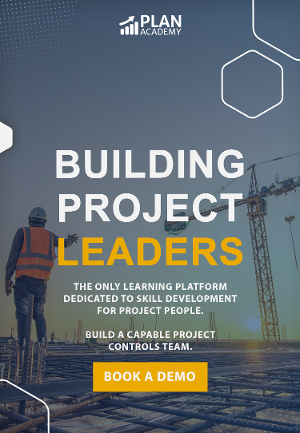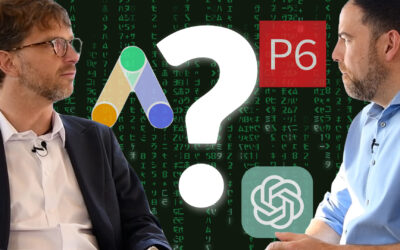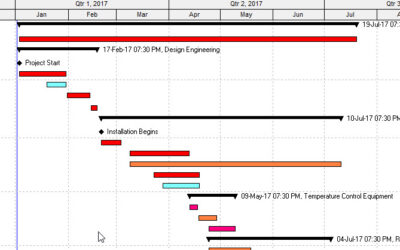20 Must-See TED talks for Planning Professionals
TED.com is one of our favourite sources for inspiration and awe. If you’ve never visited TED.com or watched some of the amazing speakers showcased there, then you are missing out. I wanted to share with you 20 Ted talks that fit right in with the skills, experience and challenges of planning and scheduling. Enjoy!
1. Neil Harbisson: I listen to color
“Artist Neil Harbisson was born completely color blind, but these days a device attached to his head turns color into audible frequencies. Instead of seeing a world in grayscale, Harbisson can hear a symphony of color — and yes, even listen to faces and paintings.”
This incredible speaker reminds us that we all see the world in different ways- what are your unique PMO skills? Do your gantt charts make music for you?
2. Raghava KK: What’s your 200-year plan?
“You might have a 5-year plan, but what about a 200-year plan? Artist Raghava KK has set his eyes on an ultra-long-term horizon; at TEDxSummit, he shows how it helps guide today’s choices and tomorrow’s goals — and encourages you to make your own 200-year plan too.”
The buildings and projects you manage will exist for generations- does your plan keep that in mind?
3. Pam Warhurst: How we can eat our landscapes
“What should a community do with its unused land? Plant food, of course. With energy and humor, Pam Warhurst tells at the TEDSalon the story of how she and a growing team of volunteers came together to turn plots of unused land into communal vegetable gardens, and to change the narrative of food in their community.”
Inventions around your kitchen table can be revolutionary- don’t discard an idea because it’s source is not conventional.
4. Peter Haas: Haiti’s disaster of engineering
“‘Haiti was not a natural disaster,’ says TED Fellow Peter Haas: ‘It was a disaster of engineering.’ As the country rebuilds after January’s deadly quake, are bad old building practices creating another ticking time bomb? Haas’s group, AIDG, is helping Haiti’s builders learn modern building and engineering practices, to assemble a strong country brick by brick. “
Are you ready for any disaster? Engineering, environmental, or corporate?
5. Margaret Heffernan: Dare to disagree
“Most people instinctively avoid conflict, but as Margaret Heffernan shows us, good disagreement is central to progress. She illustrates (sometimes counterintuitively) how the best partners aren’t echo chambers — and how great research teams, relationships and businesses allow people to deeply disagree.”
Who are you fighting with? What does your team look like- is it encouraging you, challenging you, or just echoing your ideas?
6. Charlie Todd: The shared experience of absurdity
“Charlie Todd causes bizarre, hilarious, and unexpected public scenes: Seventy synchronized dancers in storefront windows, “ghostbusters” running through the New York Public Library, and the annual no-pants subway ride. In his talk, he shows how his group, Improv Everywhere, uses these scenes to bring people together. (Filmed at TEDxBloomington.)”
Shared experiences can be great for creating unity, improving morale, and for stories around the dinner table…and don’t forget to look up!
7. Daniel Goleman on Compassion
“Daniel Goleman, author of Emotional Intelligence, asks why we aren’t more compassionate more of the time.”
This one from 2007 still speaks loudly today- a great look into how we treat each other and what motivates us to reach out to those in need.
8. Aimee Mullins: Changing my legs – and my mindset
“In this TED archive video from 1998, paralympic sprinter Aimee Mullins talks about her record-setting career as a runner, and about the amazing carbon-fiber prosthetic legs (then a prototype) that helped her cross the finish line.”
Inspiring to hear about the history of defying expectations and the power of just trying- so what if your leg falls off?
9. David Brooks: The social animal
“Tapping into the findings of his latest book, NYTimes columnist David Brooks unpacks new insights into human nature from the cognitive sciences — insights with massive implications for economics and politics as well as our own self-knowledge. In a talk full of humor, he shows how you can’t hope to understand humans as separate individuals making choices based on their conscious awareness.”
Understanding people makes your plan understandable.
10. Ramesh Raskar: Imaging at a trillion frames per second
“Ramesh Raskar presents femto-photography, a new type of imaging so fast it visualizes the world one trillion frames per second, so detailed it shows light itself in motion. This technology may someday be used to build cameras that can look “around” corners or see inside the body without X-rays.”
This camera technology allows for incredible images, ideas, and makes you remember that we’ve come a long way, we’ve got even more technology potential than we imagine.
11. Seth Godin: This is broken
“Why are so many things broken? In a hilarious talk from the 2006 Gel conference, Seth Godin gives a tour of things poorly designed, the 7 reasons why they are that way, and how to fix them”
Not thinking about how people use what you make, makes for a lot of broken things that litter your world. Make sure your plan considers who needs to see it and how they need to use it.
12.Timothy Prestero: Design for people, not awards
Timothy Prestero thought he’d designed the perfect incubator for newborns in the developing world — but his team learned a hard lesson when it failed to go into production. A manifesto on the importance of designing for real-world use, rather than accolades. (Filmed at TEDxBoston.)
Are you planning for prestige or for practicality? Keep your plans grounded in reality.
13. Dan Meyer: Math class needs a makeover
Today’s math curriculum is teaching students to expect — and excel at — paint-by-numbers classwork, robbing kids of a skill more important than solving problems: formulating them. In his talk, Dan Meyer shows classroom-tested math exercises that prompt students to stop and think. (Filmed at TEDxNYED.)
Have you been programmed by textbooks to expect simple solutions to complex problems? Ask real and complex questions to get well thought out answers.
14. James Kunstler: How bad architecture wrecked cities
“In James Howard Kunstler’s view, public spaces should be inspired centers of civic life and the physical manifestation of the common good. Instead, he argues, what we have in America is a nation of places not worth caring about.”
Kunstler says “I think it’s appropriate to call it the greatest misallocation of resources in the history of the world” when referring to suburbia- how are your resources allocated?
15. Paul Bennett finds Design in the details
“Showing a series of inspiring, unusual and playful products, British branding and design guru Paul Bennett explains that design doesn’t have to be about grand gestures, but can solve small, universal and overlooked problems.”
The point of view from the person and not the corporation can mean the smallest changes with the biggest difference.
16. Arianna Huffington: How to succeed? Get more sleep
“In this short talk, Arianna Huffington shares a small idea that can awaken much bigger ones: the power of a good night’s sleep. Instead of bragging about our sleep deficits, she urges us to shut our eyes and see the big picture: We can sleep our way to increased productivity and happiness — and smarter decision-making.”
What about the costs to our time that we ignore due to being tired? Are you sleeping enough?
17. Barry Schwartz: Our loss of wisdom
“Barry Schwartz makes a passionate call for “practical wisdom” as an antidote to a society gone mad with bureaucracy. He argues powerfully that rules often fail us, incentives often backfire, and practical, everyday wisdom will help rebuild our world.”
Virtue gets defined and you find yourself wondering how your job description and your personal interactions collide.
18. Hans Rosling: Global population growth, box by box
“The world’s population will grow to 9 billion over the next 50 years — and only by raising the living standards of the poorest can we check population growth. This is the paradoxical answer that Hans Rosling unveils at TED@Cannes using colorful new data display technology (you’ll see).”
Hans using data in a way that makes an overwhelming situation manageable and lets the information become accessible to anyone.
19. Hans Rosling: The magic washing machine
“What was the greatest invention of the industrial revolution? Hans Rosling makes the case for the washing machine. With newly designed graphics from Gapminder, Rosling shows us the magic that pops up when economic growth and electricity turn a boring wash day into an intellectual day of reading.”
Another one from Hans Rosling- this time getting you thinking about what small changes can make such a huge impact.
20. Mark Forsyth: What’s a snollygoster? A short lesson in political speak
“Most politicians choose their words carefully, to shape the reality they hope to create. But does it work? Etymologist Mark Forsyth shares a few entertaining word-origin stories from British and American history (for instance, did you ever wonder how George Washington became “president”?) and draws a surprising conclusion. (From TEDxHousesofParliament in London)”
Are you lost in the jargon of your industry? Don’t forget the power of your words, who is listening, and how far what you say travels.






